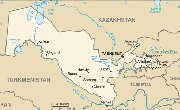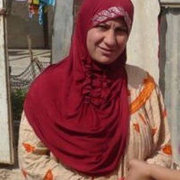 |
| Pope Shenouda III |
Open contempt for head of church of more than 40 years bodes ill for Christians.
CAIRO, Egypt, March 23 (CDN) — As Christians across Egypt continued to mourn the loss of Pope Shenouda III this week, Islamist leaders of the Salafist movement issued a litany of insults, calling the late leader of the Coptic Orthodox Church the “head of the infidels” and thanking God for his death.The vitriol indicated the level of hostility the Salafists, who now make up 20 percent of Egypt’s parliament, have toward Christians. In a recorded message released on the Facebook page of one leading Salafi teacher, Sheik Wagdy Ghoneim, the sheik celebrated the pontiff’s death.
“We rejoice that he is destroyed. He has perished,” Ghoneim said on Sunday (March 18), the day after Shenouda died at the age of 88. “May God have His revenge on him in the fire of hell – he and all who walk his path.”
After the cleric issued his statement, several others followed suit, releasing insults throughout the week. On Monday (March 19) in the lower house of Egypt’s parliament, the People’s Assembly, several Salafi members refused to stand in remembrance of Shenouda during an official moment of silence. Others left before the moment of silence took place.
Bishop Mouneer Anis, head of the Episcopal and Anglican Diocese of Egypt, North Africa and the Horn of Africa, said that insulting people after their death is considered one of the rudest things someone can do in the Middle East. Anis, a close friend of the pontiff, told Compass the comments and actions were “very sad.”
“I see this as being moved by hatred,” Anis said. “To be honest, I feel sorry for members of the Salafi – to criticize such a remarkable man.”
The provocative comments are not a good sign for Egypt’s Christians. Adherents of the Salafist movement, which obtained that one-fifth of the People’s Assembly through the Nour Party, have led most of the recent attacks against Christians in Egypt. The comments were thought to reveal the utter disdain the Salafists have toward Egypt’s Christian minority.
The Salafist movement claims it patterns its beliefs and practices on the first three generations of Muslims.
Shenouda, formerly know as Nazeer Gayed Roufail, died due to complications from kidney disease and other health issues. A former theology teacher, Shenouda was enthroned on Nov. 14, 1971 as the 117th Pope of Alexandria and head of the Coptic Orthodox Church.
He led the church through some of its most challenging times, often coming into conflict with the government. In 1981, he criticized then-President Anwar Sadat for what Shenouda characterized as an inadequate response to the rise of what is now called “political Islam” in Egypt. For this and the Coptic protests against Sadat that followed, Sadat banished Shenouda to a monastery in the desert.
Shenouda was released three years later, after Islamic militants assassinated Sadat, and after his successor, Hosni Mubarak, granted the pope amnesty. Last year, Mubarak was deposed after a series of pro-democracy protests roiled the country.
Shenouda’s passing leaves many questions unanswered as to how the leaders of the Coptic Orthodox Church will direct its followers to deal with the persecution leveled against them. Mubarak’s removal from power brought heretofore unfulfilled promises of change by the transitional military-run government, but it has also unleashed a tide of violence against Copts unheard of in recent history.
In his statement, Ghoneim made a long list of accusations against Shenouda that, put together, portray the former pope as waging a war against Muslims in Egypt. The accusations were considered either twisted by lack of context or were blatantly false, such as the claim that Shenouda was holding two female Coptic converts to Islam against their will in a monastery. Ghoneim characterized Shenouda’s well-known desire to see Egyptian society protect the human rights of Christians as impudence.
Most surprising was the claim that the former pope was somehow orchestrating the religiously motivated violence against Christians in Egypt.
“He wanted the sectarian strife,” Ghoneim said. “He wanted to burn Egypt.”
The irony of the comments has not been lost on most Copts. In May, Salafist leaders publicly threatened to kill Shenouda over the rumors about hiding the two women against their will. This was after groups of Muslims, led by members of the Salafist movement, held massive protests in April and blocked rail and road ways because the transitional military government appointed a Copt to be governor over the province. The rioting stopped only after the appointment was withdrawn.
Though it all, Anis said, Shenouda remained ardent in trying to engage Muslims in a peaceful way.
“He was a friend of many Muslim leaders. He was a peacemaker,” Anis said. “He was even criticized by Christians for making peace with those who persecuted the church.”
The last public meeting Shenouda had was with members of the Muslim Brotherhood, a little more than a week before he died.
“Pope Shenouda met members of the Muslim Brotherhood even when he was in pain,” Anis said.
Most Muslims in Egypt did not share Ghoneim’s sentiments. The leader of the Muslim Brotherhood, the largest Islamic group in the country, issued a statement expressing his condolences over the Coptic pope’s death.
Shenouda was buried on Tuesday (March 20) in the Monastery of St. Bishoy in Wadi el-Natrun, with several thousand followers attending. Before Shenouda was buried, Naguib Ghobrial, lawyer and head of the Egyptian Union for Human Rights, filed suit on Monday (March 19) against Ghoneim for contempt of a revealed religion.
Undeterred, Ghoneim released a statement the next day denying any wrongdoing and issued a challenge to all Christians.
“You believe in your Bible and say its words are holy,” he concluded. [Your Bible teaches] ‘Love your enemies and bless all who curse you.’ Your enemies – you love them and those who curse you – you bless them. So I say, God curse you! Bless me now. Bless me. Isn’t this your religion? I am going to say it again – I am your enemy, and I say, God curse you. Now, say it, ‘We love you Wagdy. And God bless you Wagdy.’”
END


















